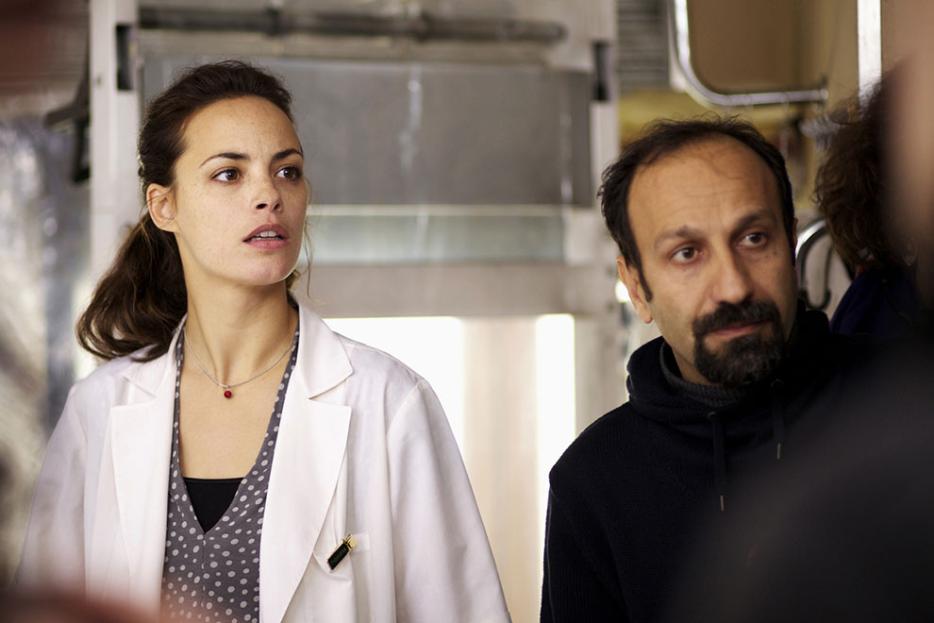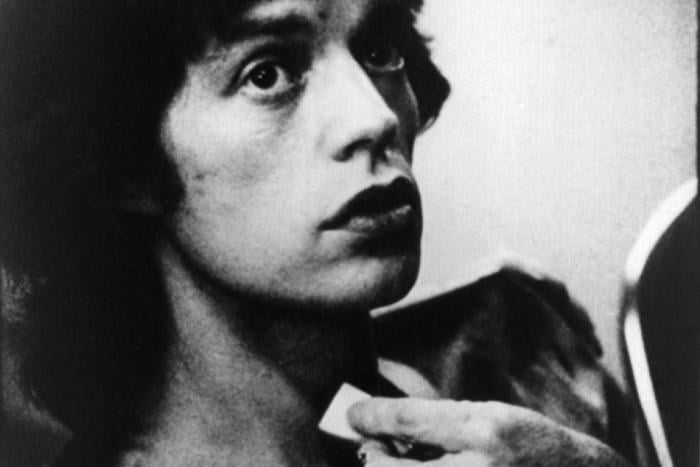While Iranian cinema has been winning respect from critics for a couple decades now, it has never had much luck capturing an audience stateside. That’s why the unprecedented mainstream success of Asghar Farhadi is so significant: he leads the charge in reshaping American misconceptions about contemporary Iranian life, shifting the conversation from the familiar narratives of censorship and oppression toward a more nuanced perspective on one of the world’s great cultures.
As a writer and director, Farhadi’s dramas derive their power from a moral sophistication and complexity. In his films events are less important than their implications; the truth is given shape by how it’s perceived. And every conflict, however trivial or severe, is more entangled than it first appears.
Farhadi now follows up on A Separation—his Academy Award-winning drama about a man accused, perhaps wrongly, of injuring his father’s caretaker—with the much buzzed-about The Past, which goes into wide release this weekend. Shot in Paris and written largely in French (and a bit of Farsi), The Past is Farhadi’s first feature shot outside his homeland. Though its appealingly Parisian setting has doubtless helped boost the film’s international profile—likewise its award-winning cast, headed up by Oscar-nominated actress Berenice Bejo—The Past explores many of the same themes that have defined Farhadi’s career. The film’s reluctant hero, an Iranian expat named Ahmad (Ali Mosaffa), is back in Paris to finalize his divorce from Marie (Bejo); from there The Past draws its players into the orbit of what can only be described as a quintessentially Farhadian crisis. And the result, as you might expect, is quite complex.
Hazlitt sat down with Farhadi after the film’s screening at last September’s Toronto International Film Festival, at which The Past was enthusiastically received. We talked about morality, drama, and why he wants people to take his movie home with them.
Tell me about glass as a visual motif.
This started with my film Fireworks Wednesday. In this film I have a character who comes to fix a window which is broken the night before. Slowly this motif becomes more dominant in my next films. This motif has two functions for me: One thing is that when glass or a window is placed between a character and the camera, it blurs the characters, and makes them seem more mysterious—it gives you the impression that perhaps this is a character you cannot easily understand. This is something that I used in a major way in my film A Separation, in which it seemed as if there was a kind of halo around my characters. But the way I use it in The Past is different: here, when glass is placed between the characters, it conveys that they while they can see each other, they cannot know each other. In this way even when there is no glass between the characters, we still feel as if there is something keeping them apart, something that makes them unable to communicate with one another. So yes, you’re right, this is an important motif.
In all of your films, lives are interrupted by an unexpected event, at which point the story must change to accommodate the emotional fallout and moral implications. For instance, About Elly is about a group of friends on vacation, but midway through one of them disappears. A Separation is about a man struggling to care for his aging father, but then he causes an accident and must deal with the consequences. But in The Past, the event has already happened.
This is actually the most important difference between The Past and my other films. In my earlier films, the event is happening at the time that you are watching the story. In About Elly, a girl disappears right in front of our eyes. In A Separation, right in front of our eyes, a husband and wife are getting separated. In both cases, we immediately feel the impact of those events. But in The Past the major event has already happened, four years ago, and we are watching the follow up. This is the big difference between this film and my other films—time has a different meaning. And this is why maybe, perhaps, the rhythm of this film is different than the others. For example, both The Past and A Separation feature courtroom scenes. In A Separation the rhythm of the court is very fast, it’s living in the moment, because the couple are separating then and there for the first time. But in The Past the couple have already separated, so there time in the courtroom is a mere formality—they’re just there to sign a paper. That’s why it’s a much slower sequence. And yet underneath this calm surface, there is fire burning.
Another key difference, I think, is that this story is shaped and accelerated not by the introduction of new events, but by the revelation of information. The focus is the discovery of a past action rather than the action itself.
You’re right. In my other films, there is an event, and everything which follows revolves around it. In this film there is information, but the information is covered in dust—it’s up to the characters to keep wiping the dust away, like archeologists who continue to discover new things. That’s why the information is delivered to the audience so slowly.
There are many things in the film that are left unexplained for the simple reason that they never come up in conversation—for instance, we never learn about the first husband, or the fact that we’re never told precisely why the protagonists are divorced. How much of this information do you plan out at the writing stage even if you know you aren’t going to share it with the audience?
Sometimes I know but I simply believe I cannot share it. Other times I really don’t know it myself. I think, why should I always expose everything? I think, maybe, instead of telling about the first husband, I leave it up to the audience to make up a story for themselves. I think it’s better this way. If I had mentioned a few things about the first husband, then the audience’s imagination could only fill in so much. But having said nothing about him at all, the audience’s imagination can create a complete story. For example, Ahmad left his wife four years ago. I could have justified this in a way, but I didn’t want to—and this is because I don’t want the film to end for an audience, I want the audience to leave the film with it still in their minds, asking questions. Why did he leave? I think I am saying a lot by not saying anything—I’m just doing it indirectly. For example, we don’t know why Ahmad left four years ago, but the fact that when he comes into the house he’s always looking to fix and mend things, that is saying something about him. We could imagine that this character who is always looking to fix things comes into this society which is a bit passive and he feels he cannot do anything. And this is in a way saying things indirectly.
I think, too, that you leave the audience asking questions even very early on. It’s conventional to introduce a character quickly by having somebody explain who they are and how they relate to the other people in the film, but in this film you don’t do that—it isn’t even clear at the beginning how Ahmad fits into the lives of the people he’s visiting, especially with the kids, who we don’t learn until later aren’t even his.
When you’re telling a story, you need to be thinking about drama. Drama simply means that the audience cannot predict what’s next. For me this is not a game—there’s a philosophy behind it. And this is just like life, because you cannot know what’s happening next in life. This is what makes life so attractive. For example, many people ask me how people live in my country, and why I would want to be there or go back. I tell them that it is attractive to me precisely because I can never predict what will happen next. In Switzerland you can have a five-year plan. But I would never want to live in Switzerland, because if I knew what was going to happen five years down the line I just wouldn’t want to do it. In my stories it’s the same thing. I don’t want my audience to know what story they’re watching after one minute.
In A Separation, the audience is asked to sympathize with the lead, Nadir, but as the film moves along you call that sympathy into doubt by complicating his morality. In this film, however, the main character seems more straightforwardly sympathetic—in fact he’s the one character in the film who seems grounded and stable. It isn’t as ambiguous, morally.
At first glance, yes: Ahmad looks like he is the calmest and most assured person in the film. But there is one person in the film who does not believe that he is like this, and that’s Marie. She believes that all of the problems in her life began after Ahmad left. She even tells him that she feels sick to her stomach seeing him pretend to be such a nice person. If we look at these characters superficially, yes, he seems kind, he seems sweet, he’s very good with children. But if we go a bit deeper, we realize that he is as responsible as the rest for everything that is happening. Ahmad is like a detective in the film, finding out the riddle. He’s looking for someone to point the finger at. But at the end he realizes that the person he was looking for is himself. And perhaps maybe everything that he’s doing is a way of covering up the damage that he’s caused to this family and to this woman. If someone is being too nice, you should be a little bit suspicious of them.
I think a key moment for Ahmad is when he advises the daughter to reveal her involvement in her mother’s affair.
Yes. Ahmad insists to the daughter that she tell the truth, and he believes he is doing the right thing. But why did he himself not tell the truth? In a way, he is making up for his own mistakes by instructing the daughter to do the things he could not do himself. In a way, he is atoning throughout the film. The only right thing he does in the film, really, is to tell the daughter to tell the truth.
Which is also the one thing he does with negative consequences, in a way.
It’s always like this, in life. There is always a high price to pay for telling the truth. That’s why most people mostly lie, because it makes life much easier.
Both this film and A Separation end on a moment of ambiguity. Why do you want to deny the audience a sense of resolution in that way?
I have a few important reasons. In some ways, if you are saying your film is a realist film, or documentary-like, you have to be loyal to reality. In real life nothing ends—no story ends. For example, if a man and a woman fall in love, their story doesn’t end there, it continues. It doesn’t end when they separate either. I don’t really believe in endings. They are unbelievable to me. The other point is that I don’t want my films to end—I want the audience to take the film home with them once it ends. I always end my films at exactly the point where a new story will begin in the mind of the audience. For example, A Separation ends as the daughter is deciding whether she wants to live with her mother or her father, and that’s exactly the beginning of another story. I take my films to the point at which there is going to be the start of another and that’s where I end. I am very conscious of not wanting to confuse my audience, because they won’t enjoy it. It’s true that my films are open-ended, but there are clues about which direction the ending will take—for example, the teardrop at the end of The Past hints at one direction.
That’s also a moment of a doubt, though—we’re not sure if it means anything. Do you think if you had ended, say, A Separation by showing which parent she chose, would audiences leave more satisfied or less satisfied?
The audience would have been much happier, but they would have forgotten the film. The fact that people still stop me in the streets now, years later, and ask me what happened means that the story didn’t end. People are still worried about her destiny. If I had ended that film with the decision, there would have been a momentary satisfaction, but the way I left it means that audiences will carry the story on with them through their life, in their heart and in their imagination.






